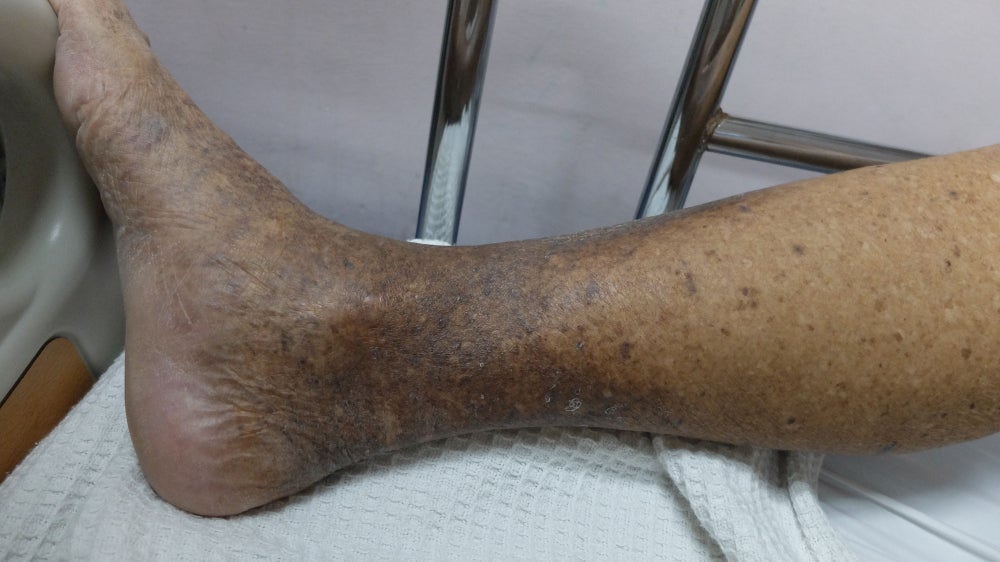
The UK Home Office has said it is looking into a medical cannabis trial to treat a six-year-old boy, Alfie Dingley, who has a rare form of epilepsy that causes up to 30 seizures a day.
Following a meeting with Dingley’s family, ministers have said a three-month medical cannabis trial may be a viable treatment option to pursue. The announcement follows several unsuccessful requests from the family to use a treatment based on cannabinoids in Dingley’s treatment.
Dingley had previously received a course of cannabis-derived medication while in the Netherlands, which his family says reduced the number, duration and severity of his seizures. Their request for a similar trial to be established in the UK is being supported by the all-party parliamentary group on drug reform.
“It would be heartless and cruel not to allow Alfie to access the medication,” co-chair of the group and Conservative MP Crispin Blunt said.
However, the decision is not yet final and ministers have emphasised the need for sufficient evidence prior to the trial’s initiation.
A Home Office spokesperson said: “No decisions have been made and any proposal would need to be led by senior clinicians using sufficient and rigorous evidence.”
How well do you really know your competitors?
Access the most comprehensive Company Profiles on the market, powered by GlobalData. Save hours of research. Gain competitive edge.

Thank you!
Your download email will arrive shortly
Not ready to buy yet? Download a free sample
We are confident about the unique quality of our Company Profiles. However, we want you to make the most beneficial decision for your business, so we offer a free sample that you can download by submitting the below form
By GlobalDataIn the UK cannabis is not currently recognised as having any therapeutic value. Classified as a Schedule 1 drug, it cannot be prescribed to the public and any research involving its use requires a licence. However, the UK Medicines & Healthcare products Regulatory Agency (MHRA) reclassified a component of cannabis, the cannabidiol CBD, as a medicine in 2016. This means that in special cases, doctors can prescribe medications containing CBD to be manufactured or imported for a patient.
An MHRA spokesperson said: “We have come to the opinion that products containing cannabidiol used for medical purposes are a medicine. Medicinal products must have a product licence (marketing authorisation) before they can be legally sold, supplied or advertised in the UK, unless exempt. Licensed medicinal products have to meet safety, quality and efficacy standards to protect public health.”
Residents of other EU states who have been prescribed cannabis-based medication are allowed to bring it into the country providing they have a certificate, though this certificate is only valid for a maximum of 30 days.
Despite certain limitations in the UK, cannabis is a growing industry on the global market with several major international drug companies working to develop cannabinoids for mainstream use. One such example is GW Pharmaceuticals, which created the world’s first cannabis-based prescription medication, Sativex. The drug has been approved for the treatment of spasticity due to Multiple Sclerosis in numerous countries such as Sweden, Germany and the Czech Republic. It is also legal in the UK, with the Home Office having licensed the treatment in 2006. Though the treatment is seen as separate from cannabis, it is still classified as a Class B drug and possession or distribution of it without a medical licence is considered an offence.
GW currently has several other cannabinoid products in development, including Epidiolex (cannabidiol) for the treatment of certain rare, early-onset and drug resistant epilepsy syndromes. The drug gave positive results in FDA phase III trials, causing a reduction in the number of monthly seizures of patients with Lennox-Gastaut syndrome (LGS), a rare treatment-resistant disease that causes debilitating epileptic episodes. As of March 2017 Epidiolex has been granted Orphan Drug Designation by the European Medicines Agency (EMA) for treating LGS.
Another major force in cannabinoid development is Corbus Pharmaceuticals. The company is currently working on anabasum, a synthetic oral endocannabinoid-mimetic drug that targets chronic inflammation and fibrotic processes. The EMA granted anabasum Orphan Drug Designation and fast track status in 2017, and in April 2017 the company announced its plans for a single Phase III study of anabasum for treatment of systemic sclerosis following its successful end-of-Phase II meeting with the FDA.
Cannabinoid therapies are also being developed by Zybnerba Pharmaceuticals, which is working on its drug candidates ZYN001 and ZYN002. The former targets two pain indications; fibromyalgia and peripheral neuropathic pain, while the latter is designed for patients with refractory epilepsy, osteoarthritis of the knee and Fragile X syndrome.







